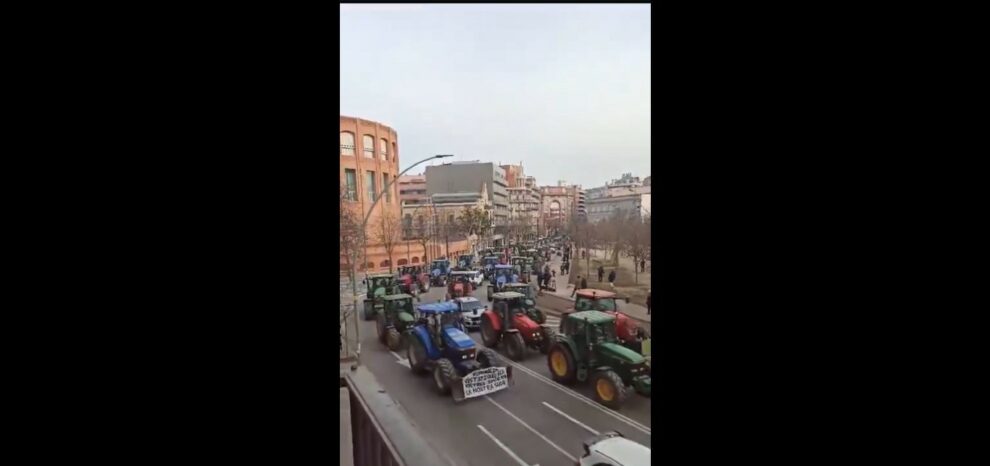Thousands of farmers took to the streets across Spain on Tuesday, using tractors to block highways and key infrastructure in a mass protest against European agricultural policy.
Called to action by the “Union de Uniones” regional farmers syndicate but also by activists mobilising on WhatsApp, the protesters gathered at dawn at dozens of road junctions, including many that lead into large towns and cities.
Dressed in sleeveless yellow hi-vis jackets, demonstrators, some of whom waved Spanish flags, demanded concrete measures to help rural residents tackle a string of difficulties.
“Without the countryside, there’s no life,” read one banner, while another said: “When we reach the end, you die.”
Protesters also warned about instability in the farming sector.
According to the traffic authorities, tractors driving at a snail’s pace converged in and around the provinces of Toledo near Madrid, Murcia in the southeast, and Seville and Girona in the north east.
Authorities in the southern port of Malaga said on X, formerly Twitter, that protesters had also blocked off its access routes.
“There have been problems building up that have pushed us to demonstrate,” one grain producer told AFPTV without giving his name, pointing to the burden of “excessive bureaucracy” and the “low prices” pushed on farmers.
“The countryside needs to make its voice heard.”
A similar message was relayed by Spain’s three main agricultural unions, Asaja, Coag and UPA, who did not take part in Tuesday’s demonstrations but said they would stage other protests later this week, notably in the western city of Salamanca on Thursday and the northern port city of Bilbao on Friday.
– Drought –
Angry farmers have been protesting across Europe over the struggles faced by the sector due to rising costs, high fuel prices, soaring inflation, bureaucracy and the environmental requirements in the EU’s updated Common Agricultural Policy (CAP) and its forthcoming “Green Deal”.
The three unions — which have denounced EU agricultural policy as too complex with overly restrictive legislation and allowing unfair competition from foreign exports — held emergency talks on Friday with Agriculture Minister Luis Planas, who agreed to work on a response.
But the talks were not enough to head off the crisis that had been brewing since January in many EU nations including Belgium, France, Germany and Italy.
“The government understands the sector’s concerns. We are taking things in hand and from the start, we have been working closely with them,” said Pilar Alegria, spokeswoman for Spain’s left-wing government.
The government was trying to help those affected by the ongoing drought with 140,000 farmers set to benefit from 270 million euros ($290 million) in grants, she said.
And Ecology Minister Teresa Ribera told public radio that the government understood the farming sector’s concerns given the drought and the “bureaucratic burdens” they were facing.
“We have to adapt the European sustainability objectives — the so-called European Green Deal — to the pace demanded by Europe’s farming sector,” she said.
But she also criticised the political “manipulation” of the EU’s environmental guidelines, most of which have not yet come into force.
The EU’s Green Deal — a set of laws to mitigate climate change and boost environmental protections — has been harshly criticised by Spain’s far-right Vox party as seeking to “destroy” Iberian agriculture.
As the continent’s leading exporter of fruit and vegetables, Spain is often described as the “vegetable garden of Europe”.
But its agricultural sector is facing difficulties, largely due to the lack of rainfall that has plagued the Iberian peninsula for the last three years.
